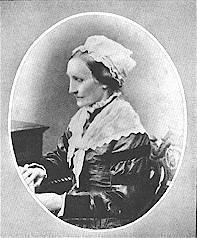1803 - 1870 Hymnal Number: 363 Author of "God Speed the Right" in The New Jubilee Harp William Edward Hickson [also known as Richman Hopson] United Kingdom 1803-1870. Born at London, England, the son of a boot maker, he studied at schools in Germany and the Netherlands. In 1830 he married Jane Brown. He became a businessman and an educational writer, retiring from his business in his late 30s to concentrate on philanthropic pursuits, particularly the cause of elementary education. He authored six books on various business and social topics. Of Baptist faith and having musical interest he authored: “The singing master” (1836), “Dutch & German schools” (1840), “Part singing” (1842), “Time and faith” (2 volumnes-1857), and “Try again”. In 1839 he visited North Germany, the Netherlands and Belgium to study the national school systems of those countries and provided the outlines of a scheme to adopt educational practices found in those countries considered superior. He was proprietor and editor of the Westminster Review” (1840-1852, noted for its commitment to legislative reform and popular education. He published his findings of the education study. In 1840 he looked into the unemployed handloom weavers situation in Great Britain and Ireland and prepared a report of his findings, recommending repeal of the corn laws and improving the educational system. He wrote part of the Official Peace Version of the British national anthem, approved by the Privy Council. He died at Fairseat, Sevenoaks, Kent, England. His published motto: If at first you don’t succeed, try, try again.
John Perry
===============
Hickson, William Edward, son of William Hickson, boot manufacturer, of Smithfield, London, was b. Jan. 7, 1803; retired from business 1840; d. March 22,1870, at Fairseat, Sevenoaks, Kent. Three pieces from his Singing Master, 1836, have come into somewhat extensive use.
1. God bless our native land (p. 1566, ii.)
2. Join now in praise, and sing. [Praise to God.] 1836, as above (ed. 1840, pt. v., No. 62). It was rewritten by the Rev. C. H. Bateman as "Come, children, join to sing " (p. 244, ii.).
3. Now to heav'n our cry [prayers] ascending, God spead the right . [National.] 1836, as above (reprint on cards, No. 85). This is repeated in W. B. Bradbury's Young Melodist, 1845, p. 122, and many later American books.
With regard to "God bless our native land," we find that in the 1st ed. of the Singing Master, 1836, Hickson's hymn was in 3 stanzas only (p. 1566, ii.). [Rev. James Mearns, M.A.]
--John Julian, Dictionary of Hymnology, New Supplement (1907)
W. E. Hickson


 My Starred Hymns
My Starred Hymns







